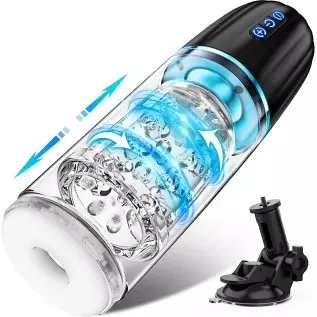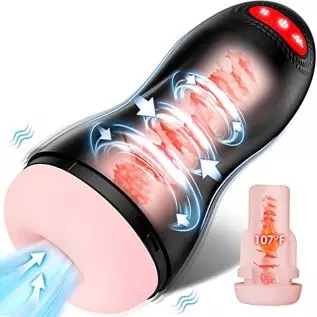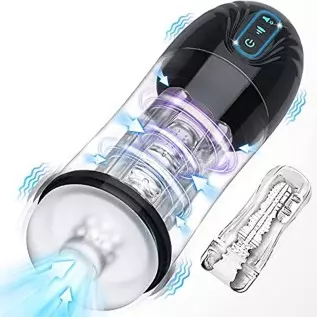Common contraceptive errors among young people. How to achieve correct and healthy contraception?
Nowadays, young people generally have sex at an earlier age. Due to the relatively immature sex education in our country, many people eat the forbidden fruit without understanding. If contraceptive measures are not taken, the harm to the body caused by pregnancy and abortion is immeasurable. Today I will introduce to you what are the wrong contraceptive methods for young people, and teach you about healthy contraception and issues that couples of childbearing age need to pay attention to when changing contraceptive methods.
Common contraceptive errors among young people
First of all, don’t be superstitious about ejaculation. In vitro ejaculation refers to a method in which a man pulls out his penis when he is about to ejaculate, so that the semen is ejected outside the woman's body. The failure rate of the in vitro ejaculation method is as high as 28%, and it can also cause harm to male sexual function.
Secondly, the safety period is not safe. Safe period contraception means using contraceptive tools only during the ovulation period and not using any contraceptive method on other days. The failure rate of contraception during the safe period is very high, reaching 14.4%-47%. Because the menstrual cycle will be affected by factors such as diet, emotion, environment, etc., the ovulation time will also fluctuate, and even extra ovulation will occur, so the safe period contraceptive method is not reliable at all.
Finally, don’t use the wrong condoms. The success rate of contraception can be as high as 98% when using condoms correctly, but improper use will greatly reduce the success rate. Problems such as putting on condoms too late, removing condoms too early, using the wrong model, not checking before use, and expired condoms are common. These incorrect usages will reduce the contraceptive success rate of condoms and lead to contraceptive failure.
How to achieve correct and healthy contraception?
Short-acting oral contraceptive pills: Short-acting oral contraceptive pills are a combination of estrogen and progesterone, such as Mafulon. They only require one pill per day, and are usually taken continuously for 21 days, with a cycle of 7 days off. The characteristics of short-acting contraceptive pills are that they are easy to control and have excellent cycle control (ie, menstruation is very regular); there is no need to worry about weight changes; and pregnancy can be achieved after stopping the pill.
Long-acting contraceptive pills: Long-acting contraceptive pills are taken once a month and have a higher dose (the monthly estrogen content is 4.5-4.8 times the total monthly dose of ethinyl estradiol of short-acting pills), and their contraceptive safety is lower than that of short-acting oral contraceptives. Contraceptive pills.
Since sustained-release drugs will have a high blood concentration in the early stages of taking them, they will cause serious side effects. Women have poor adaptability and have serious side effects. More than 50% of women experienced side effects such as nausea, dizziness and increased leucorrhea. In some women, the amount of menstrual flow will increase, the menstrual period will be prolonged, and it may also cause amenorrhea. Since the drug is absorbed and stored in fat tissue in the body and metabolized slowly, it takes more than half a year after stopping the drug before planning a pregnancy.
Quick-acting contraceptive pills: also known as family visiting contraceptive pills, can be divided into progestogen preparations, estrogen-progestin compound preparations and non-progestin preparations. The first two kinds of family visiting tablets are taken regardless of the time of the menstrual cycle. Take one tablet the day before or at noon on the day of visiting relatives, and then take one tablet every night for at least 10 to 14 days. For the latter kind of family visiting tablets, take 1 tablet immediately after the first sexual intercourse, 1 additional tablet the next morning, and 1 tablet immediately after each subsequent sexual intercourse. It is named because it is suitable for contraception when couples live in two places and visit relatives for a short period of time. It is not restricted by the menstrual cycle, but it is more likely to cause irregular vaginal bleeding.
Emergency contraceptive pills: Emergency contraceptive pills are contraceptive pills used to prevent pregnancy during a period of time after unprotected sex or contraceptive failure.
Things couples need to pay attention to during contraception
In decades of life, couples of childbearing age will inevitably have to change contraceptive methods due to certain circumstances. Once such a situation occurs, please be sure to pay attention to the following issues.
1. Before changing a contraceptive method, you must have a full understanding of the new method and master the correct method of use.
2. No matter which type of contraceptive pill you take, if you want to switch to other contraceptive methods, you must insist on taking it for one menstrual cycle and never change it midway, otherwise it will cause menstrual disorders or contraceptive failure.
3. If women who use long-acting contraceptive pills want to switch to short-acting contraceptive pills, they need to start taking them after the end of the menstrual cycle to reduce the occurrence of menstrual disorders and liver function damage.
4. Although intrauterine device products are constantly updated, they all have their advantages and disadvantages. As long as the inserted intrauterine device is suitable for you, has reliable effects and has no side effects, you should continue to use it and do not blindly replace it. Usually IUDs are left in place for 10-20 years.
5. Couples who originally used contraceptives, if they want to switch to oral contraceptives, such as Mafulon, should start taking the medicine on the day of menstruation. If they start taking the medicine on the 2nd to 7th day, they must continue to use contraceptives one week before taking the medicine.
















